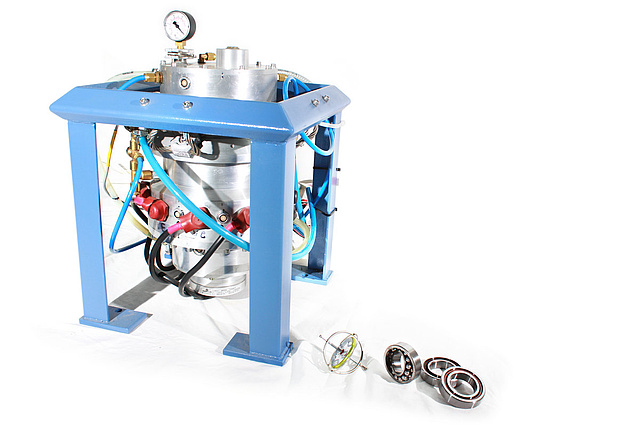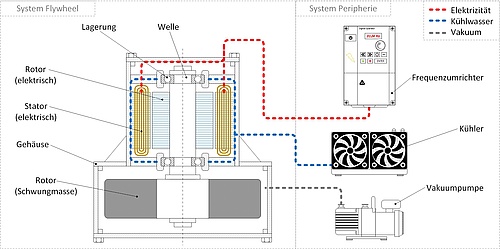An Introduction to Flywheel Energy Storage
Since 2010 the Institute of Electrical Measurement and Measurement Signal Processing has been working in the field of Flywheel Energy Storage Systems (FESS). An FESS is an energy storage device, similar to a battery, but instead of storing the energy chemically, it is stored in kinetic form in a rotating disc. Typically, the rotor is accelerated by an electric motor (charging process) and decelerated when the motor is switched to generative operation (discharging). The stored energy is a function of the angular velocity squared, which is why there is a trend towards faster and more compact flywheels. The following image shows the topology of various FESS concepts.
Previous Research Activities
In the past years a variety of scientific papers on FESS have been published, partially in cooperation with the Institute for Machine Elements and Methods of Development. Furthermore, 2 full scale prototypes of flywheel energy storage systems for automotive applications have been realized:
- Clean Motion Offensive: A 40 kW / 100 Wh system for a parallel hybrid personal car
- TSA HighFly: A 145 kW / 800 Wh system for a heavy commercial vehicle in urban traffic
- Lifetime prolonging measures through active and passive vibration control
- Reduction of frictional torque loss
- Characterization of thermal properties of roller bearings
- Special test rigs and measurement systems for high speed bearings
Test Rigs
- Test rig for investigation of bearing torque loss
- Test rig for investigation of rotor virbation control measures
- Test rig for investigation of burst containments
- Test rig for thermal investigation of bearings
- D-Space Datenerfassung und Regelsysteme



